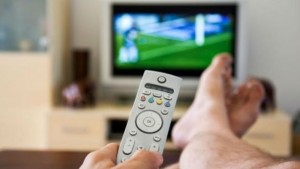Home » Commentary » Opinion » Sports and the Nanny State
· Ideas@TheCentre

 It’s Australian Open time again. We are halfway through the cycle: we’ve had the articles about whether or not we hate our local tennis brats, and the absurd optimism after early wins. Soon will come anger at the losses, followed by resignation and then 95% of the country will be puzzled at how they got emotionally invested in tennis again.
It’s Australian Open time again. We are halfway through the cycle: we’ve had the articles about whether or not we hate our local tennis brats, and the absurd optimism after early wins. Soon will come anger at the losses, followed by resignation and then 95% of the country will be puzzled at how they got emotionally invested in tennis again.
Why do we think we own our sports heroes? Paying customers may feel aggrieved by Kyrgios tanking, or those with a financial interest might abhor match fixing, but why does John Q Punter believe that sports stars owe them anything?
Sure a good chunk of our tax dollars, and discretionary income, go to supporting sports elite. And if the fact that taxpayers fund public health can be used to justify compulsory bike helmets, sugar taxes and anti-obesity advertising bans, maybe this means we get to tell tennis players they should be more committed?
The thing is; I don’t think for one second this is about taxpayer funding — as shocking as that may seem. No, I suspect what deeply frustrates so many of those emotionally invested in underperforming sports stars is the belief that they would give anything to have the talent of a Kyrgios or a Tomic but have to watch them waste it all.
Leaving aside whether fame is all it’s cracked up to be, it’s curious that snack-hoovering couch spectators imagine they would magically have more dedication if they were a sports star. If your new year’s resolution to get off the couch and get fit has evaporated by the 16th of January, I doubt you will stick at 12 hours practice a day for very long.
Similarly, someone may wonder why an overweight and poor person doesn’t buy fresh food, take up an exercise program, and get a better job. Yet everyone has challenges in their own lives that they struggle to overcome — even if those challenges seem simple to others.
The point is this: you may think you know what’s best for someone else, and that you could make their choices better than they do. But you are probably wrong, and you shouldn’t do it anyway.
Sports and the Nanny State